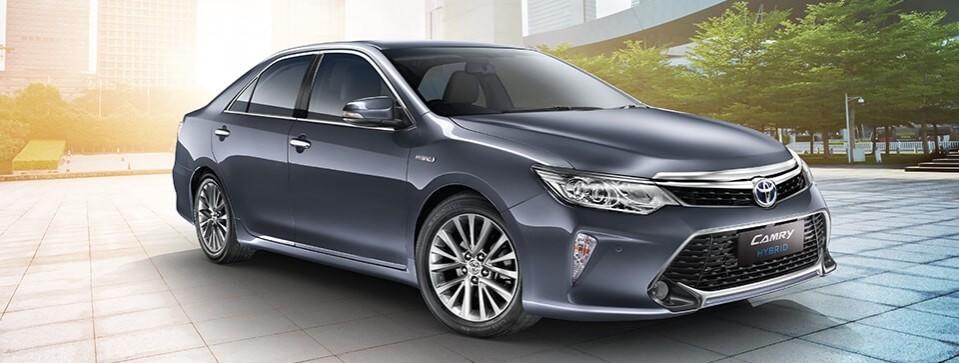The first hybrid car from the Maruti Suzuki-Toyota partnership will roll out from of blocks in three years, as the alliance between the two carmakers goes to the next level.
Earlier, Toyota and Suzuki had vouched to work together in the Indian market in a deal that would give Toyota a leg up in the small car segment while Suzuki would gain from the global leader's edge in researched and development.
It was also reported in December that Suzuki was keen on kicking off research in hybrids and was lobbying with the government for higher incentives for this segment.
If you get the battery cost down, that's a first step to success and because of our battery plant, we are ahead
In the latest development, the two automakers plan to manufacture complete hybrid cars by sharing each other's expertise and making joint investment.
Highlights
- Joint investment and research will bring down lithium battery cost, which is prohibitive currently
- Toyota benefits from Maruti's expertise in the small car segment and Maruti gets tech edge from the hybrid pioneer.
- India is implementing stringent BS VI emission norms in April 2020.
- When this happens, the prices of diesel cars will go further up, almost copletely erasing the diesel advantage over petrol
- Carmakers hope more government incentives for hybrid vehicles will make this segment attractive to carbuyers
"Both Suzuki and Toyota are working towards reduction in the cost structure and that will be the hallmark of this collaboration ... One of the reasons for this collaboration is that no company in this world wants to invest in research and development alone, because they are not sure of the outcome. It is always better to buy technology at one stage because the cost of developing a technology would become prohibitive," Shekar Viswanathan, vice chairman and whole-time director at Toyota Kirloskar, told the Mint.
Toyota, a global pioneer sin hybrid cars, re-launched its storied Camry Hybrid in India last week. The model had been off the market for some years as the high cost dampened sales.
Why Hyrbid rush?
The prices of lithium-ion batteries, which are used in hybrid cars, are prohibitive currently. "If you get the battery cost down, that's a first step to success and because of our battery plant, we are ahead," Viswanathan added, explaining the advantages of a collaboration with Suzuki.
Maruti Suzuki is pumping $1.5 billion for developing hybrid and electric vehicles. There was news last month that Suzuki was planning to wind up production of diesel engines at its Gurgaon plant.

Carmakers in India are racing against time for compliance with the BSVI emission norms that will be implemented next year. The Indian government has been pushing for stringent fuel efficiency norms, which would in turn cut down pollution.
As per India's latest fuel efficiency norms, manufacturers should increase average fuel efficiency by at least 10 percent by 2021 and 30 percent by 2022.
Diesel-Petrol cost difference to be at least Rs 2.5 lakh in comparable models
When the BS VI norms are in place, cars with diesel engines will be far more costlier than their counterparts running on petrol engines. It's estimated that the cost difference would be Rs 2.5 lakh in comparable models. This, coupled with the gradual thinning out of the gap between petrol and diesel prices, will push down demand for diesel cars.
Maruti, which has an array of small diesel cars running on engines sourced from Fiat, enjoys a commanding position in this segment. But with the combined blow of petrol/diesel cess and the diminishing fuel price advantage playing out, the carmaker may end up with a significant demand slowdown in its bread and butter segment.
This is why Maruti and Suzuki are eying on developing petrol-hybrid cars, which will be at least 30 percent more fuel efficient than petrol engines. However, the cost of a petrol-hybrid car will still be considerably higher than the diesel variant. But this is expected to change. While carmakers expect the government to announce more incentives for hybrids, the government would look at reaping the benefits on the pollution front.

















![India Auto Roundup: Maruti Suzuki, Mahindra have exciting launches in November [details here]](https://data1.ibtimes.co.in/en/full/805520/india-auto-roundup-maruti-suzuki-mahindra-have-exciting-launches-november-details-here.jpg?w=220&h=135)